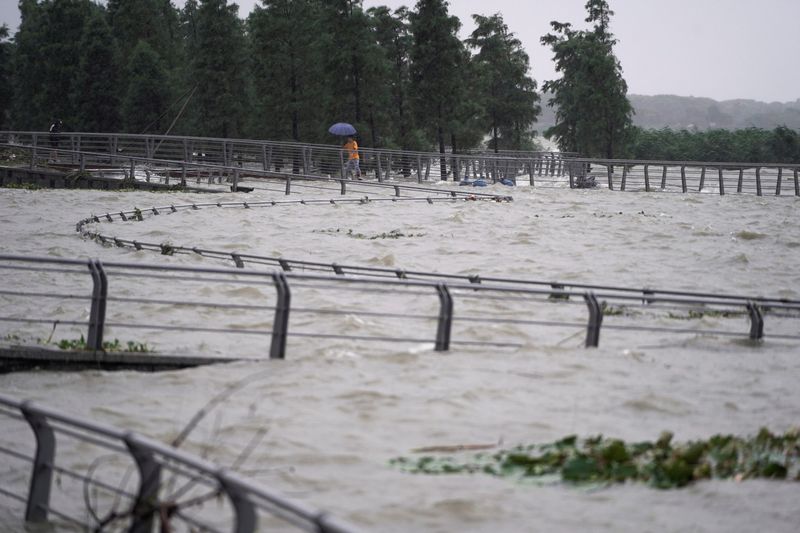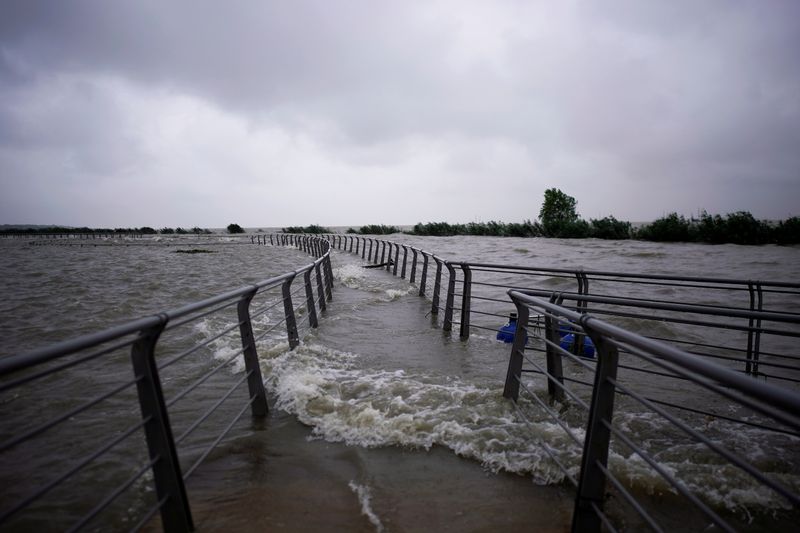SUZHOU, China (Reuters) - Around one of China's biggest freshwater lakes, residents said they were confident they could fend off this year's floods, even as rainfall continues to break records.
At Lake Tai on the border of the wealthy coastal provinces of Jiangsu and Zhejiang, water levels hit 4.49 metres on Wednesday, 0.69 metres above the official warning level, according to government data.
Since the flood season began in June, 33 rivers in China have reached their highest levels in history. As well as the Tai, other major lakes have also come under immense pressure, forcing authorities to declare "red alerts".
Though still short of the 4.97-metre record set in 1999, Lake Tai is on the rise. Nearby Shanghai is already taking precautions, opening its sluice gates to discharge excess floodwaters.
At some spots, the lake had already spilled over the banks, forcing residents to deploy sandbags. Some canals were also close to overflowing.
"By and large it is pretty severe," said Gu Yunqing, a 54-year-old security guard stationed outside an organic farm on one of the islands in the lake. "Normally it doesn't get like this."
But residents said they were not unduly worried about this year's extreme weather, claiming flood defences were far more resilient than they used to be.
"I'm not afraid," said Jiang Mingjun, a 42-year-old shopkeeper. "The flood prevention work has been done really well. There are people coming every day to check the water levels."
Gu wasn't expecting the water to get much higher. "It's going to end soon," he said.
With torrential rain still lashing down on most of the Yangtze river basin, flood defences at the Poyang Lake further inland in Jiangxi province are also under pressure.
Authorities declared another red alert at the lake on Tuesday, with water levels more than 3 metres above normal.

